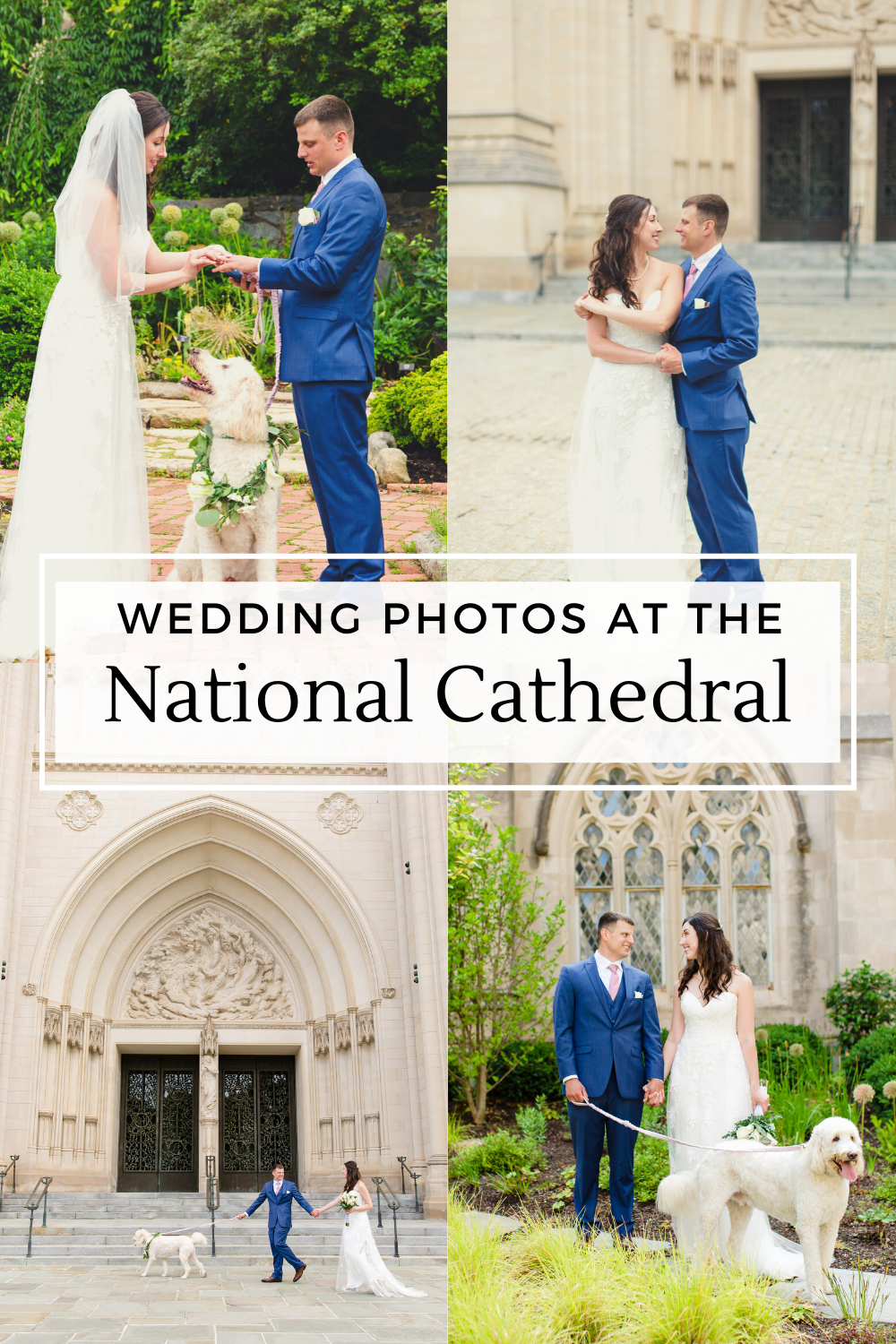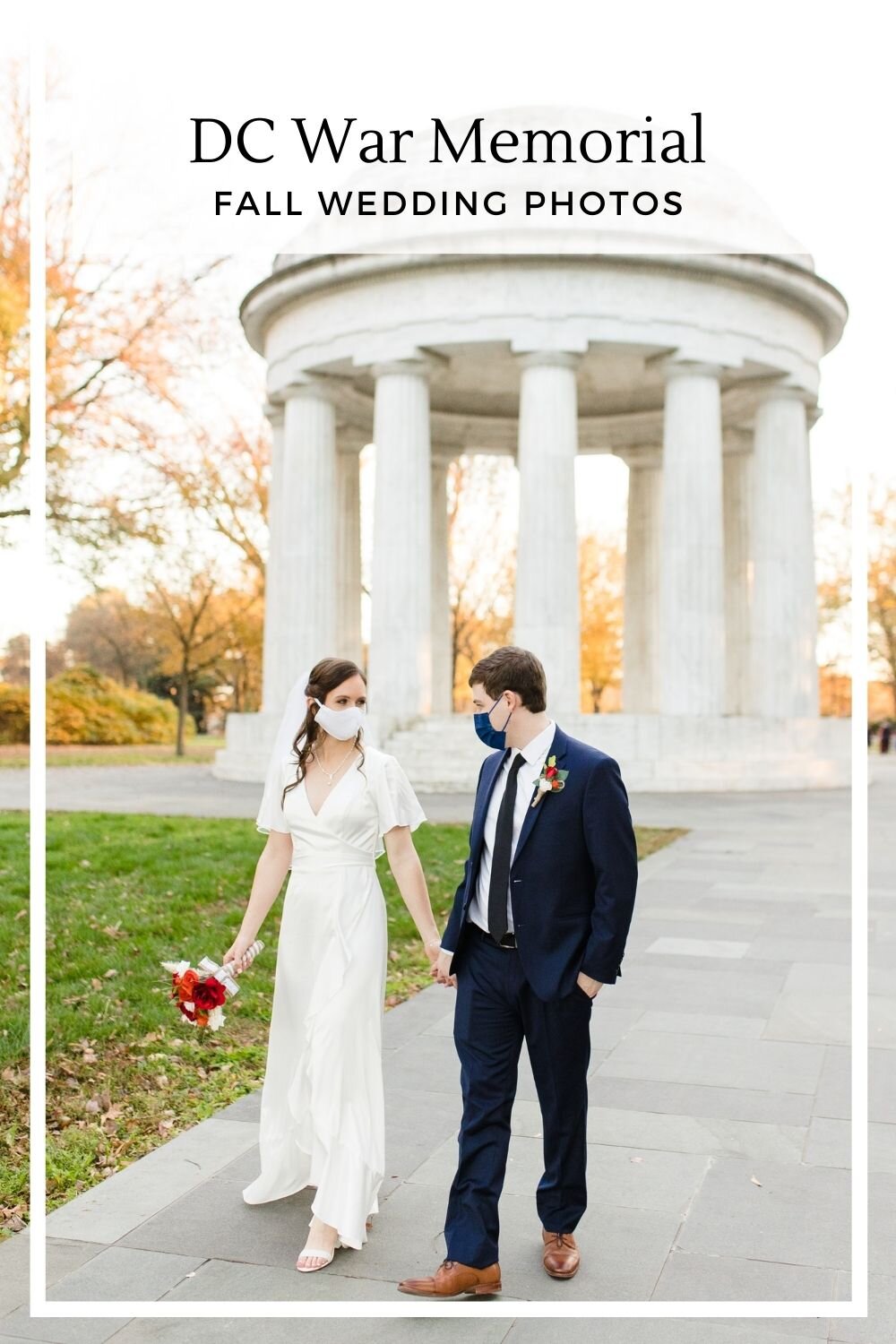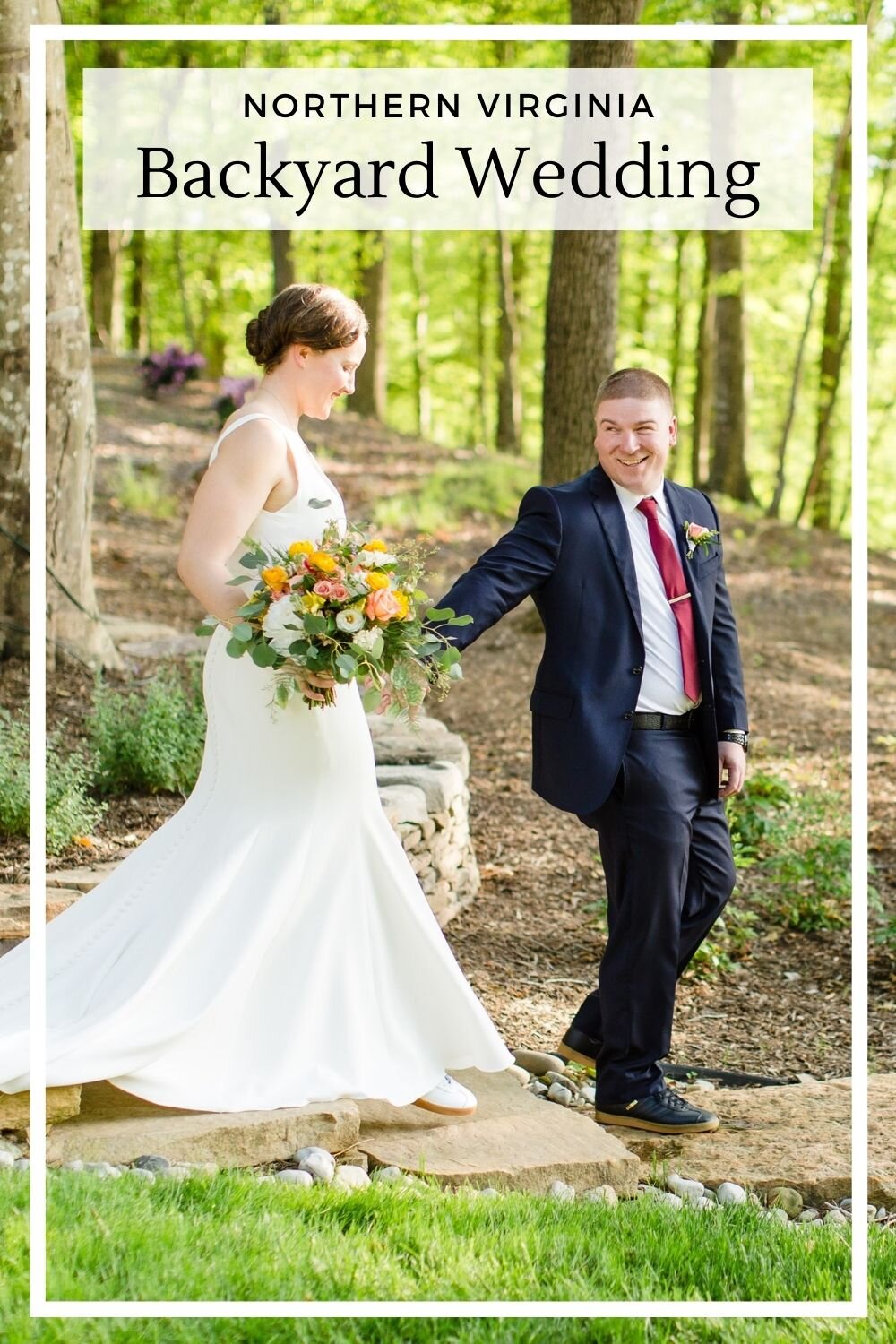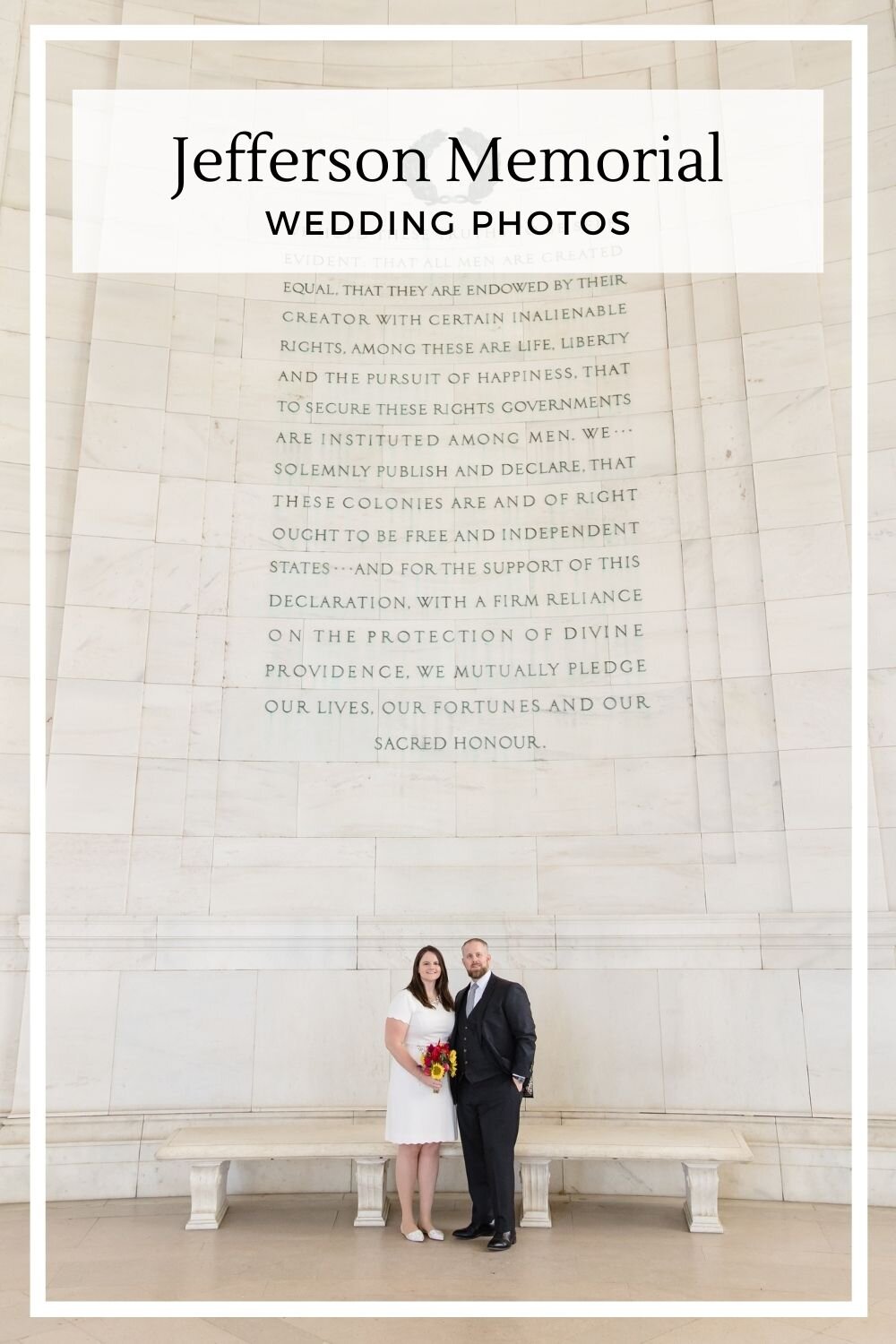How to Safely Get Married During a Pandemic
The coronavirus pandemic has left engaged couples across the world asking the same question – how can we still have our wedding safely? After investing so much time and money into your dream wedding day, it’s hard to accept that COVID-19 is throwing those carefully laid plans out the window!
Weddings are a bright spot during this very dark time. An opportunity to celebrate love, to get together with friends and family, and to briefly forget about the state of the world as it currently stands. We all want to figure out what pieces of normal life we can still hold on to, and the happiest day of your life seems like a good place to start.
I’m a wedding photographer, but my background is in public health, so I’ve got a unique perspective on finding the right balance of celebration and safety! The nature of weddings makes them one of the more dangerous things to do during a pandemic - people tend to let their guard down around their friends and family, and the laughing/singing/shouting that goes along with a wedding day can easily spread virus-carrying droplets.
So, what can you do??? How the heck can you still get married and avoid spreading COVID? Here are a few ideas:
POSTPONE OR ELOPE
Let’s be real here. The only way to truly get married safely during a pandemic is to not have a wedding. Remember that postponing is always an option. If you want to still get legally married on your original date, you can do it with just the two of you, and have everyone else present virtually! Save the big celebration for later when everyone can attend, and everyone can feel safe doing so.
It’s not ideal. It’s not the wedding you imagined. It might cost you more money. But it’s safe, and it’s the best way to protect the health and safety of your loved ones. (For more assistance, here are some tips for How to Postpone Your Wedding, How to Hold a Virtual Wedding, Where to Elope in DC, and Where to Elope in Northern Virginia)
If postponing or eloping is not an option for you, then the next best thing is all about RISK REDUCTION. If you are going to bring your friends and family together for the occasion, here are some steps you can follow to make it as safe as possible!
CUT THE GUEST LIST
There may be rules in place limiting the number of people you’ll be allowed to have, but to keep it even safer, reduce your guest count further. Smaller gatherings are inherently safer than larger ones, and this will give you even more space for people to spread out. Be sure to prepare for the fact that gathering size limits might change again before your wedding, so have guest lists prepared for 10, 25, etc in case you have to make further cuts at the last minute. (Check out this post on 5 Reasons to Consider Having a Small Wedding for some other reasons beyond safety that make small weddings awesome!)
SHORTEN THE TIME
One of the biggest factors in coronavirus spread is the duration of the exposure. If you’re in your neighborhood and you walk past someone on the sidewalk who has COVID, it’s pretty low risk that you would get infected from that brief encounter. Now if you sat next to them for 30 minutes for a wedding ceremony? That’s a bigger risk. And if you spent a few hours with them during a reception? That’s a huge risk. The less time people spend together, the safer it is. You may have originally been planning an 8-hour wedding day, but if you can shorten it to 1 or 2 hours to cover your ceremony and some photos, rather than a full cocktail hour and reception too, you’ll reduce transmission risk.
KEEP IT OUTDOORS
Coronavirus spreads much more easily in settings where there is poor ventilation, so an outdoor wedding is much safer than an indoor one. Think outside the box – get your hair and makeup done on a covered porch or patio instead of a hotel room. Have a tent on hand in case of rain so you can still have an outdoor ceremony. Rent outdoor heaters in case it’s cold.
If you have to stay inside, do your best to improve ventilation by opening windows and doors to increase airflow.
FORCE THE DISTANCING
Planning to keep everyone 6 feet apart is easier said than done. We’re human, we’re not used to this, so chances are people are going to stand closer than 6 feet from each other, especially during cocktail hour and your reception. Even people who mean well and are trying to stand at safe distances are likely to fall back into old habits and get closer without even thinking of it. (This includes me, the queen of COVID-safety 😂)
So take all the steps you can to force that distancing. Set up your ceremony chairs with 6 feet of distance between them. Rope off every other pew at church so guests don’t have a choice. Include enough tables at your reception so that each household has their own table. Make a dance floor grid with painters tape so people have their own safe dancing space.
And remember that this virus doesn’t fly around with a ruler and stop spreading right at the 6 foot mark! Especially indoors with poor ventilation, there is a very real possibility of airborne spread that can extend to farther distances, so the more space you can provide, the better.
REDUCE TRAVELING
As part of making your smaller guest list, consider where your guests are coming from. Are they coming from a hotspot area? Will they have to fly? Will they have to stay multiple nights in another family member’s home? If you can, stick with a local guest list and ask your more distant guests to attend virtually.
ASK YOUR GUESTS TO QUARANTINE BEFOREHAND
Is this realistic? Probably not. But the smaller your guest list, the better chance you have of getting a group of people who truly can quarantine for 14 days before your wedding date. If you and all of your guests can actually stay home for the 14 days beforehand, you can get together without worry!
ACCEPT THAT MASKS ARE GOING TO BE PART OF YOUR STORY
As a photographer who loves to take candid photos, I know this sucks. The smiles and laughter that you want documented on your wedding day are hard to see behind masks. But they are a simple precaution that can make a huge difference for safety, so require your guests to wear them indoors, and outdoors when distance can’t be kept. And there are tons of cute, custom masks you can find on Etsy!
SET THE EXAMPLE FOR YOUR GUESTS
Your guests are going to follow your lead. If you wear a mask at the reception, so will they. If you keep 6 feet apart from people as you chat with them, they’ll respect that. It’s your day and you two will set the tone for it.
RESPECT YOUR GUESTS’ DECISION TO STAY HOME
Do not guilt anyone into coming. This includes your parents, your siblings, and your best friends. If anyone states that they are worried, uncomfortable, or tries to convince you to postpone to a safer time - listen to them and respect their feelings. Let them know it’s ok to watch on Zoom and celebrate with you later.
BE CONSIDERATE OF YOUR VENDORS
I get on my soapbox about this issue often, whenever I’ve heard people say things like “working at a wedding isn’t any more dangerous than working in a grocery store.” Yes it is, it is much more dangerous. Grocery store employees are protected by basic labor laws, which require employers to enforce physical distancing and mask-wearing. And customers walking quietly through a grocery store for 20 minutes with masks on is a very different scenario than several hours of an unmasked dance floor full of singing wedding guests. Your vendors deserve a safe working environment like every other person is entitled to at their place of employment, so be sure you are setting up an environment where they are able to keep their distance, and that your guests are following masking requirements.
MENTALLY PREPARE YOURSELF TO CALL OFF THE WEDDING LAST-MINUTE, OR TO HAVE IMPORTANT PEOPLE NOT THERE
This is a tough one, but I’ve seen it happen to many couples. If you or your fiancé(e) wake up the morning of your wedding with a cough, you need to call off your wedding. If your mom or your photographer wakes up the morning of the wedding with symptoms, they can’t come. In normal times, obviously most of us would power through mild cold symptoms without thinking twice, but that’s not the case these days. The health of your family and friends can’t be put at risk. And even if you think “I’ll run out and get a COVID test and if it’s negative I can still go to the wedding” - NOPE. Depending on the type of test, you may not get same day results. And false negatives can absolutely happen (especially early on in the illness), so someone who is symptomatic should not be around others regardless of their test result.
Same goes for someone who recently found out they were exposed to COVID. Even if they’re feeling healthy, even if they have a negative test, they’ll need to quarantine for 14 days after their exposure and that means not attending weddings. And of course, anyone who tests positive needs to isolate (for a minimum of 10 days), so even if they are asymptomatic, they can’t come either.
Health and safety have to come first, and it’s important that you communicate this to your guests and vendors as well. No one wants to miss a wedding day, but it’s important for you as the wedding couple to let others know where your priorities are.
Ask your vendors what their backup plans are - they should have alternates ready to step in for them last-minute if they find out they cannot attend your wedding. And with many vendors working weddings every weekend (and possibly multiple times in a weekend), know that they are very high risk for exposure. A positive guest from a wedding the week before yours might mean your vendor has to quarantine and miss your wedding.
We all want this to be over and to go back to normal! The fastest way to do that is for everyone to practice basic precautions - wear masks, stay 6+ feet apart, stay outdoors as much as possible, and minimize the length of time spent around other people. Weddings can absolutely still happen this year while keeping people safe, they just don't look exactly like the typical weddings we're used to! But this is to protect everyone attending and working at weddings, so that hopefully next year we can get back to those normal, packed dance floors!
See more photos from 2020 elopements and microweddings:
More great info from some public health authorities:
CDC: Considerations for Events and Gatherings
Virginia Department of Health: Considerations for Religious and Social Events
World Health Organization: Small Public Gatherings and COVID-19











